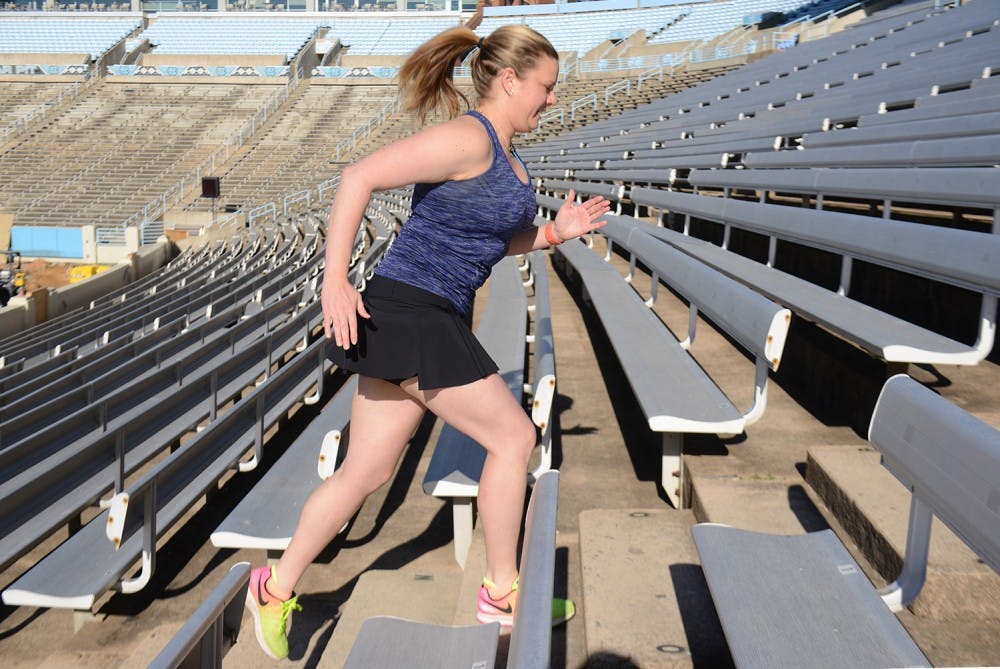“2005 was when I did my very first half-marathon, and if you would’ve told me that I would be running half-marathons and marathons in college, I would’ve laughed at you, because I never made more than three miles,” Cox said.
Nevertheless, the Boston Marathon will be her 11th full marathon.
The training required for a 26.2-mile race can be extensive, and Cox said that marathoners run between 10 and 80 miles in a week.
Not too long ago, however, women weren’t allowed to run marathons as official participants. Kathrine Switzer, the first female runner to register in the Boston Marathon, founded 261 Fearless over a year ago. She wore bib number 261 in the 1967 Boston Marathon.
Chris Grack, vice president of community outreach for the foundation, said that the race director of the Boston Marathon even tried to rip off Switzer’s official bib during the race.
“When she ran the Boston Marathon in 1967, women were being told that they can’t run more than 800 meters because they would grow hair on their chest, and their uteruses would fall out and they would become a man,” Grack said.
Switzer’s story of perseverance became significant to women across the globe.
“They would write her and tell her, you know, ‘I might be that bib number 375,000 in this marathon that I’m doing, but I’m putting the number 261 on my back, because it reminds me not to quit; it helps me push through when I don’t want to do it anymore, just like what you did for us women 50 years ago,’” Grack said.




